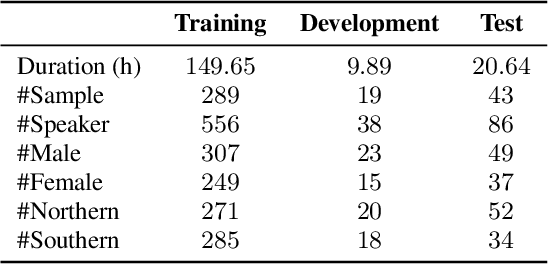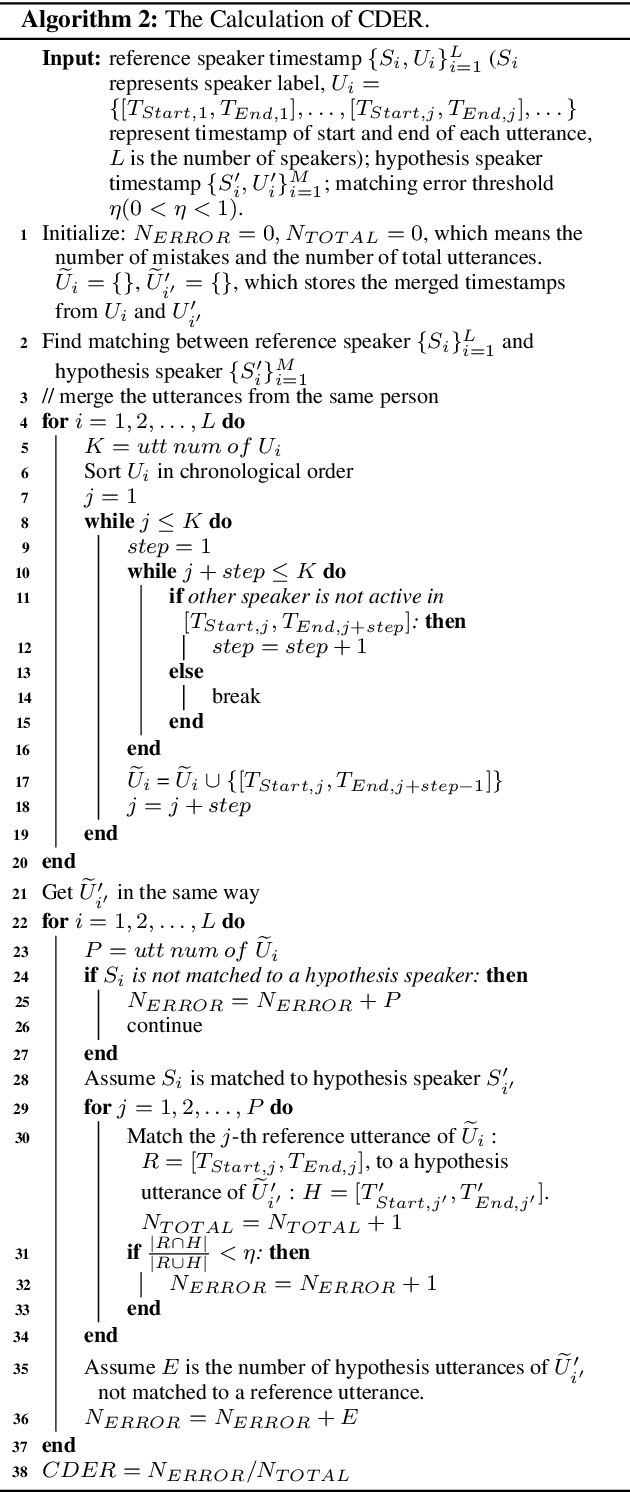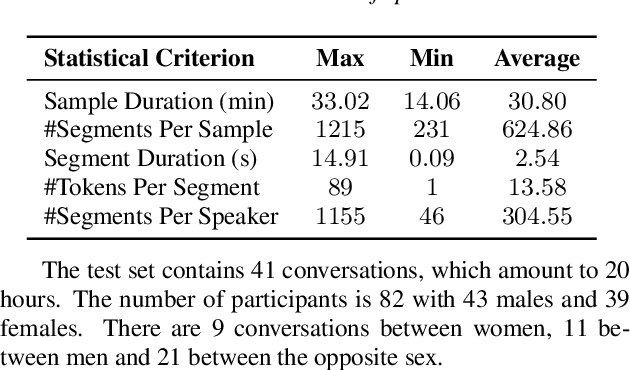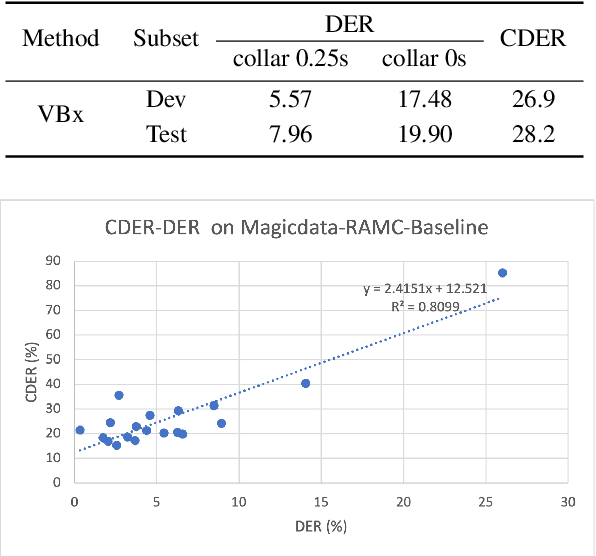The Conversational Short-phrase Speaker Diarization (CSSD) Task: Dataset, Evaluation Metric and Baselines
Paper and Code
Aug 17, 2022



The conversation scenario is one of the most important and most challenging scenarios for speech processing technologies because people in conversation respond to each other in a casual style. Detecting the speech activities of each person in a conversation is vital to downstream tasks, like natural language processing, machine translation, etc. People refer to the detection technology of "who speak when" as speaker diarization (SD). Traditionally, diarization error rate (DER) has been used as the standard evaluation metric of SD systems for a long time. However, DER fails to give enough importance to short conversational phrases, which are short but important on the semantic level. Also, a carefully and accurately manually-annotated testing dataset suitable for evaluating the conversational SD technologies is still unavailable in the speech community. In this paper, we design and describe the Conversational Short-phrases Speaker Diarization (CSSD) task, which consists of training and testing datasets, evaluation metric and baselines. In the dataset aspect, despite the previously open-sourced 180-hour conversational MagicData-RAMC dataset, we prepare an individual 20-hour conversational speech test dataset with carefully and artificially verified speakers timestamps annotations for the CSSD task. In the metric aspect, we design the new conversational DER (CDER) evaluation metric, which calculates the SD accuracy at the utterance level. In the baseline aspect, we adopt a commonly used method: Variational Bayes HMM x-vector system, as the baseline of the CSSD task. Our evaluation metric is publicly available at https://github.com/SpeechClub/CDER_Metric.
 Add to Chrome
Add to Chrome Add to Firefox
Add to Firefox Add to Edge
Add to Edge